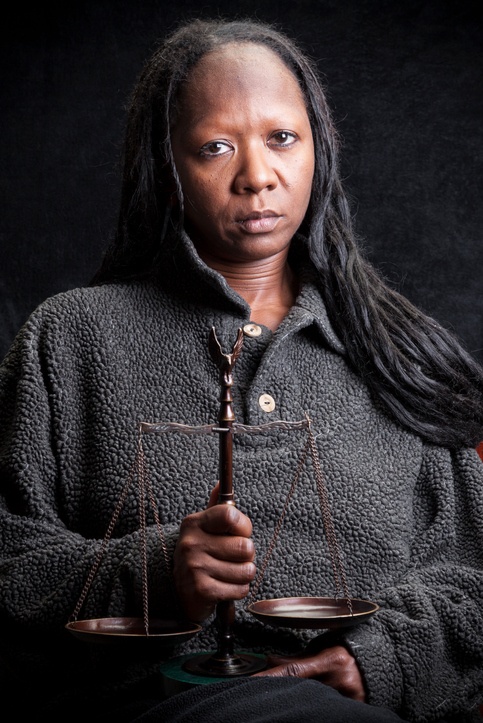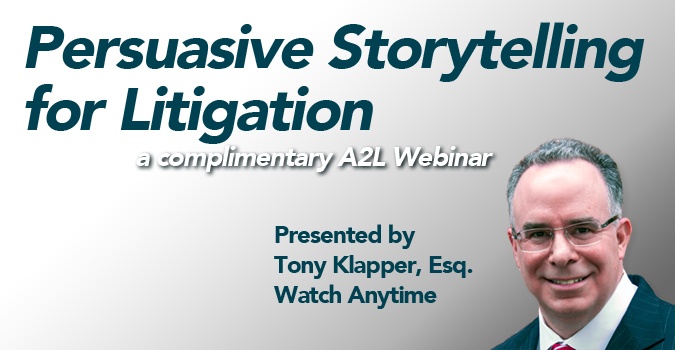During one college summer, I used to engage in aikido, a martial art. In retrospect, it was all a bit goofy, but I learned some good lessons from it. In particular, I learned about a technique common to many of the martial arts and to conflict in general.
This is the idea that you can use someone's momentum against them. If they are running at you, you can move to the side and trip them -- and they will fall. This requires far less energy from you. Similarly, in the courtroom, while there is no physical contact (hopefully), there is certainly a direction and a momentum in the way factfinders arrive at conclusions.
We've written about the idea of confirmation bias before in articles like I’m Right, Right? 5 Ways to Manage Juror Bias and Font Matters - A Trial Graphics Consultant's Trick to Overcome Bias. It's a concept that I believe all trial lawyers must understand at least somewhat.
In the courtroom, using the momentum of a juror’s beliefs to help further those beliefs is a master trial lawyer technique. A new study reveals just how important it is for high-level trial lawyers to understand this concept of persuasion.
The study, reported in the open-access journal Computational Biology, confirms something that is a little sad. It turns out that most humans will continue believing something that they previously believed, even when presented with clear evidence to the contrary and even when it hurts us to continue believing it. It's a bit more nuanced than that, but this is the essence of it.
In the courtroom, we regularly work with banks accused of fraud, companies that have allegedly polluted the environment, and tech companies accused of theft of trade secrets. Trial lawyers always have the temptation to simply try to straightforwardly show judges and juries evidence that clearly contradicts the beliefs that those factfinders arrived with. That only makes sense, right? After all, if someone says you put the pollution there and you didn't, you just tell them you didn't do it, bring evidence, and you're off the hook, right? Unfortunately, my experience and this study do not support that idea.
All humans arrive with certain biases when they show up to trial – such as these:
- Bankers are greedy.
- Oil companies don't care about the environment.
- Tech companies will do anything to win.
All too often, trial counsel puts a lot of effort into trying to disprove these beliefs. Instead, consider the aikido move, step to the side, agree with the momentum, and use it to your advantage as follows:
- Bankers are greedy, so why would they ever do something that risked their money?
- XYZ oil company has been more reckless with the environment than you or I, but given what they went through before, do you really think they are dumb enough to do it again?
- Sure, tech companies will do anything to get ahead, but can you imagine anything more humiliating to someone as competitive as ABC company as looking as if you're not as smart as the other guy? Nothing is worth that when you are a competitive tech geek.
In other words, find a way to accept that either your factfinders walked in with a certain bias or that your opponent will help them form a bias during opening statements – and then run with it. There’s no better way to test this approach than in a mock trial setting. That’s where you can learn to anticipate the biases and get ahead of them. Common sense, that new study, and several decades of litigation experience bear this out.
Other free A2L articles and resources related to confirmation bias, the overwhelming power of the opening statement, and the power of effective storytelling in the courtroom include:
- When Smart Ain’t So Smart - Cognitive Bias, Experts and Jurors
- 7 Ways to Overcome Cognitive Bias and Persuade
- Still Think Persuasion is About Talking While Showing Bullet Points?
- 5 Essential Elements of Storytelling and Persuasion
- How Much Text on a PowerPoint Slide is Too Much?
- 5 Ways to Maximize Persuasion During Opening Statements - Part 4
- Free A2L Consulting Webinar: Persuasive Storytelling for Litigation
- Good-Looking Graphic Design ≠ Good-Working Visual Persuasion
- I’m Right, Right? 5 Ways to Manage Juror Bias
- Persuasive Graphics: How Pictures Are Increasingly Influencing You
- 14 Places Your Colleagues are Using Persuasive Graphics That Maybe You're Not
- Font Matters - A Trial Graphics Consultant's Trick to Overcome Bias
- Why the President is Better than You at Creating Persuasive Graphics
- Law360 Interviews A2L Consulting's Founder/CEO Ken Lopez
- Are Jurors on Your “Team”? Using Group Membership to Influence
- Subscribe to this blog for free






Leave a Comment